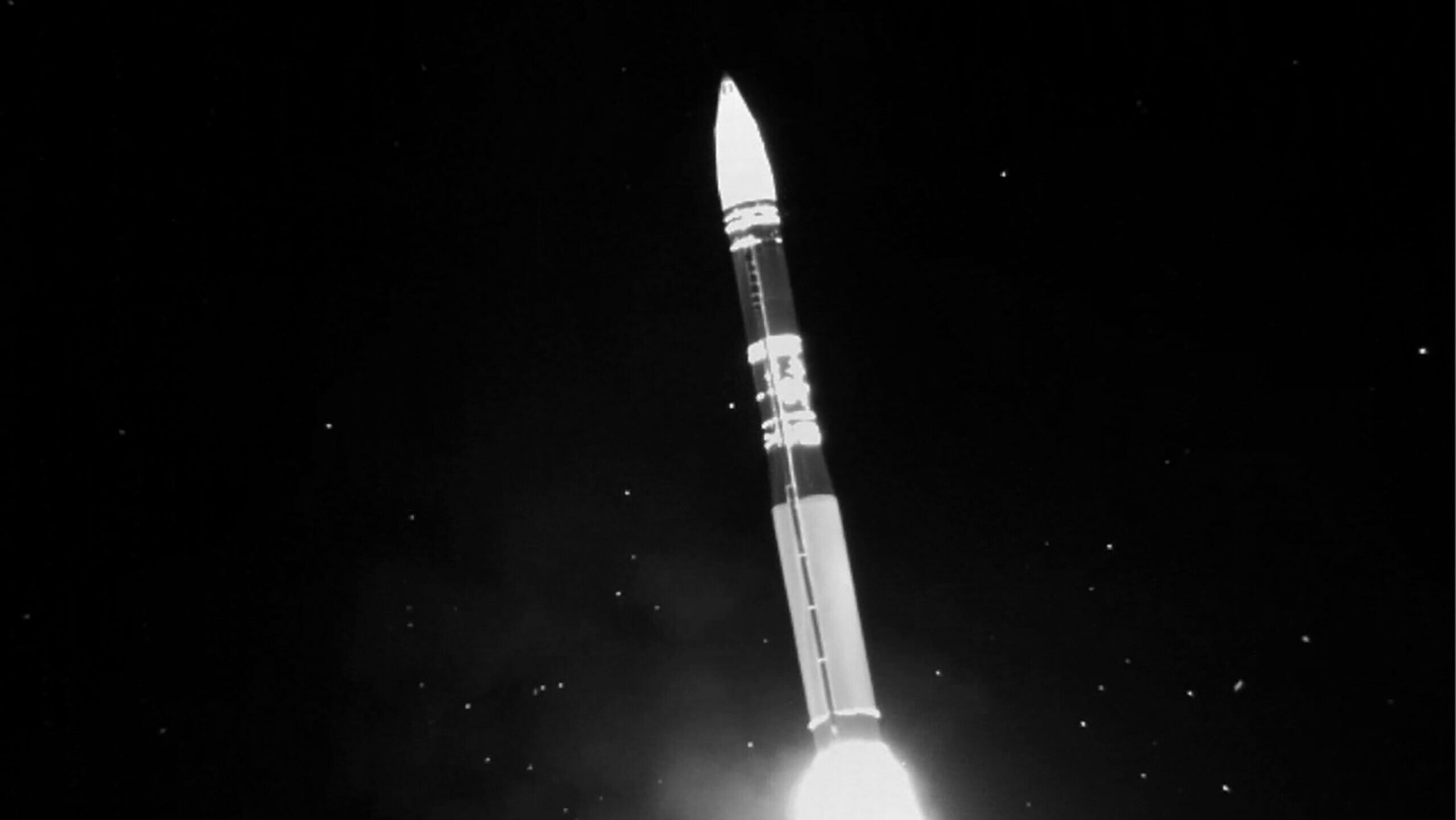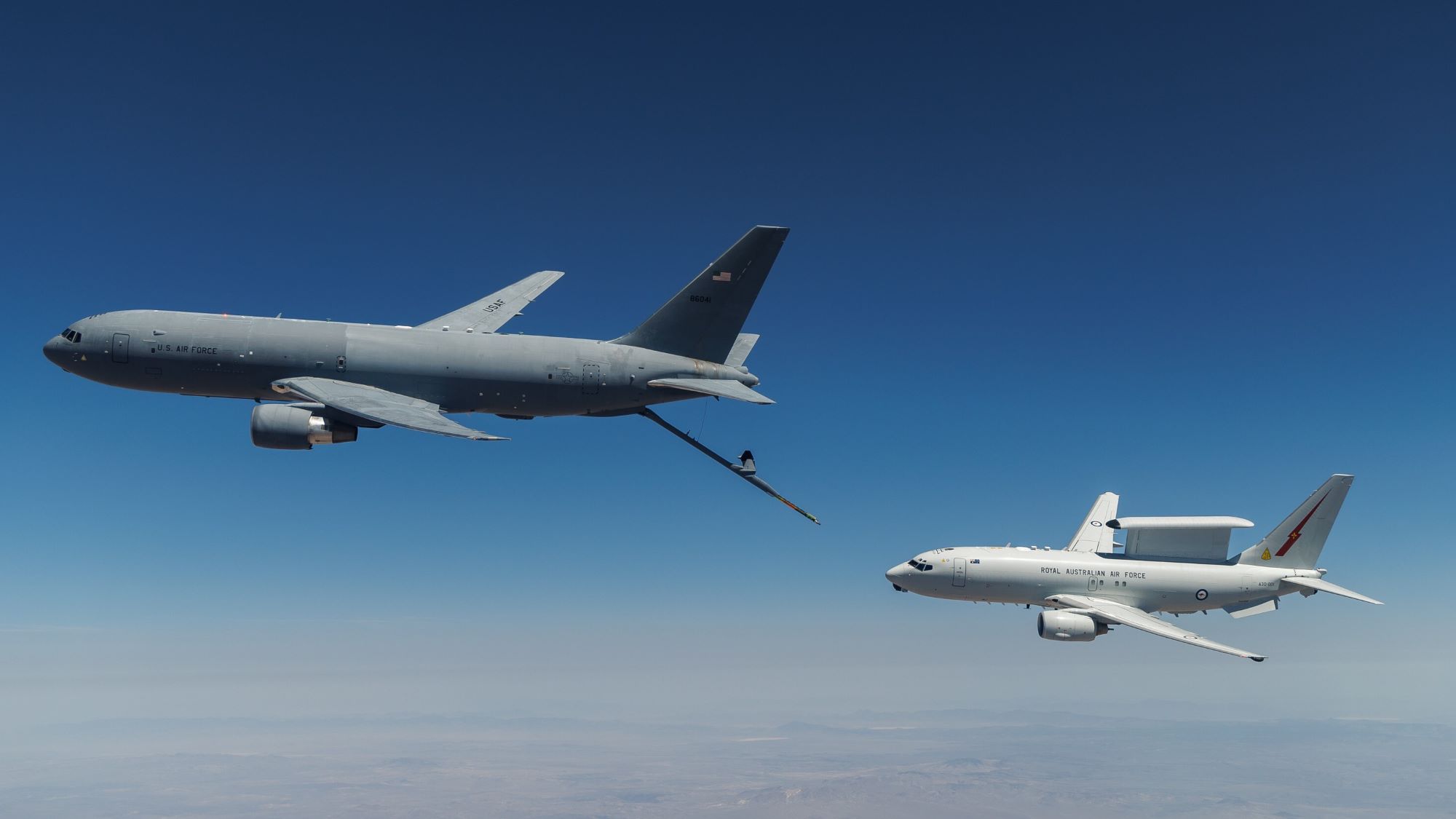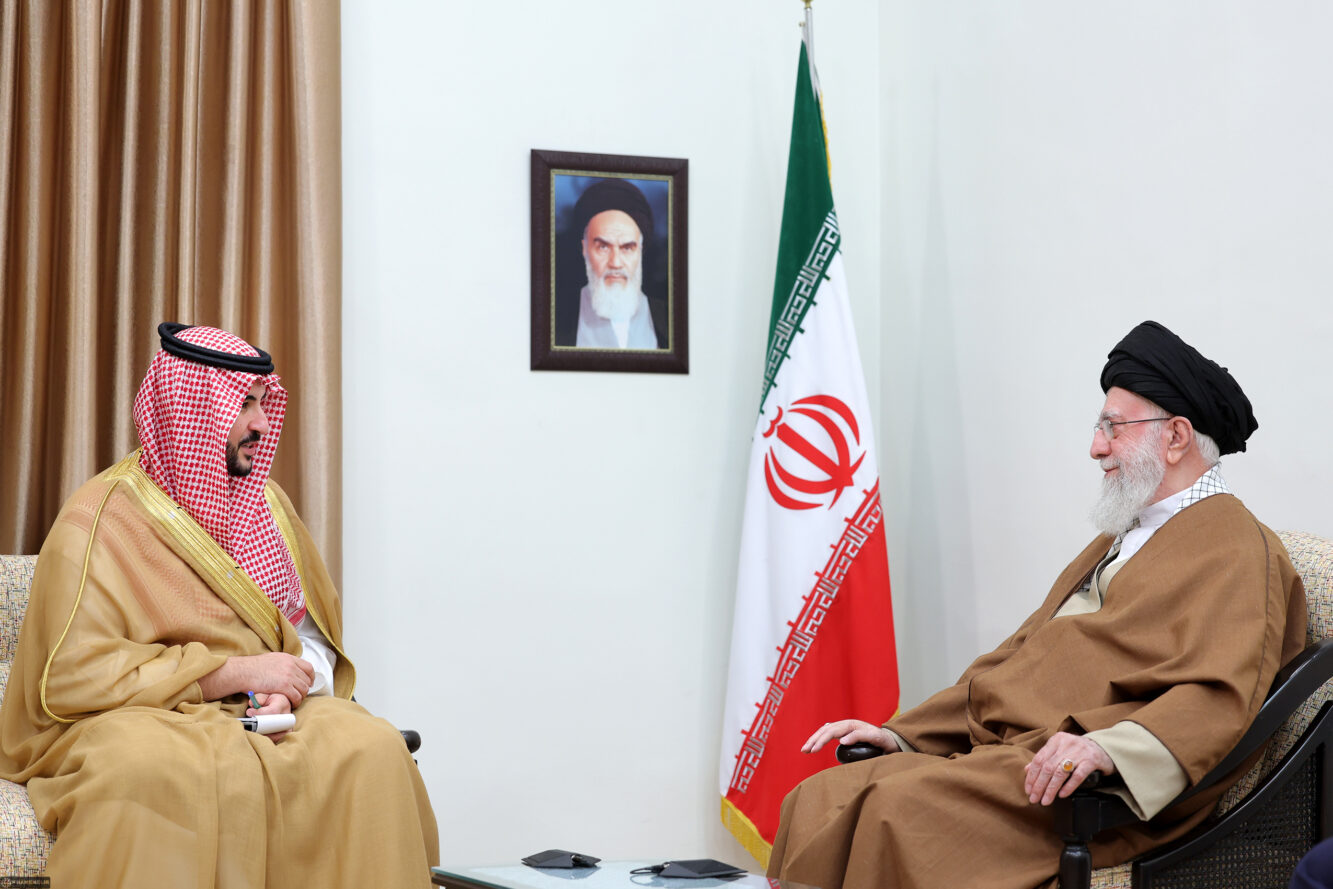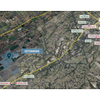Changes in FCC rules to support GPS alternatives could impact DoD
The FCC’s concerns echo those from DoD and the Space Force about the ease of GPS jamming — and the rapid rise in deliberate jamming by governments and militaries in hot spots around the world such as Syria, Ukraine and the Red Sea.
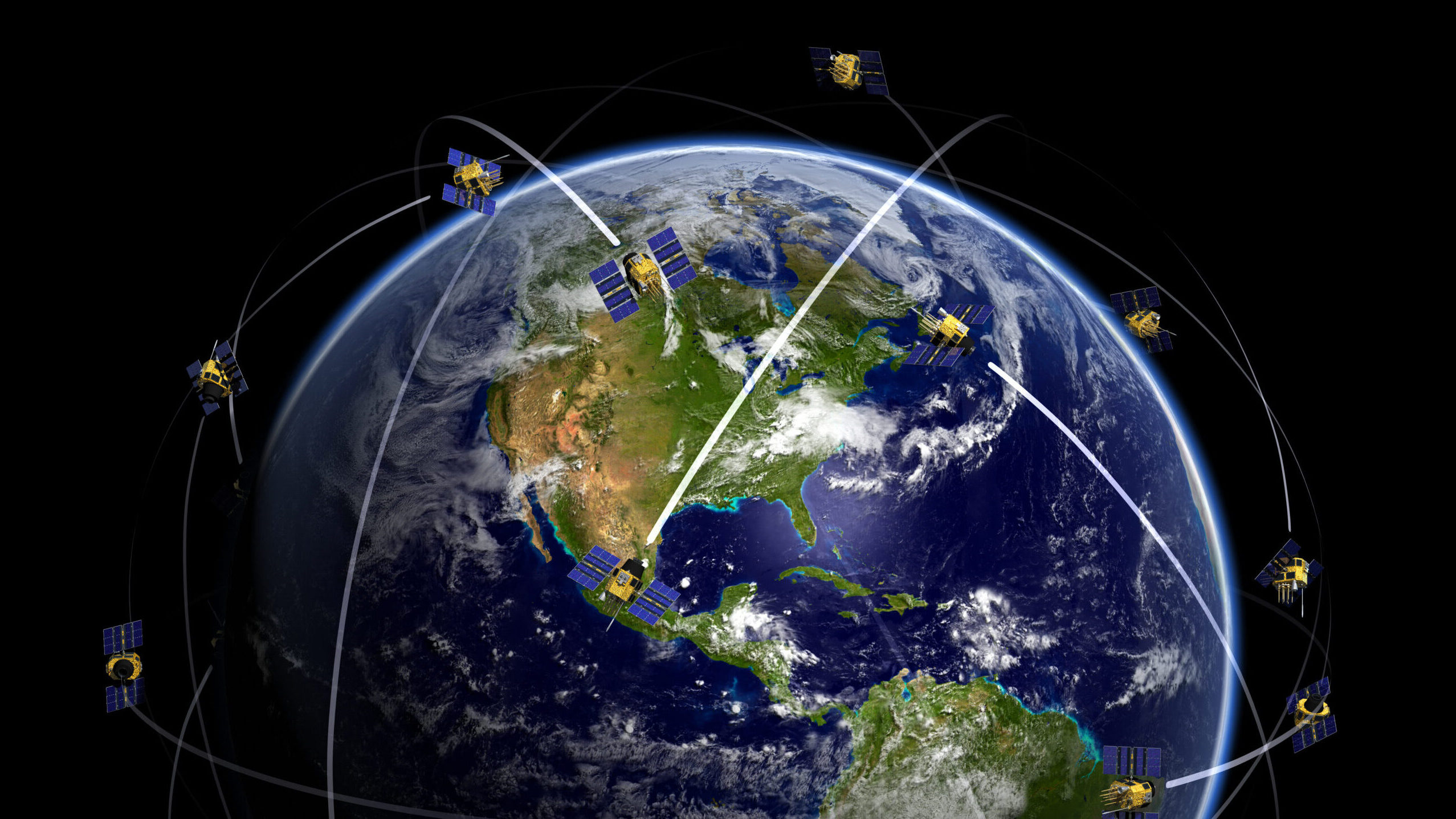
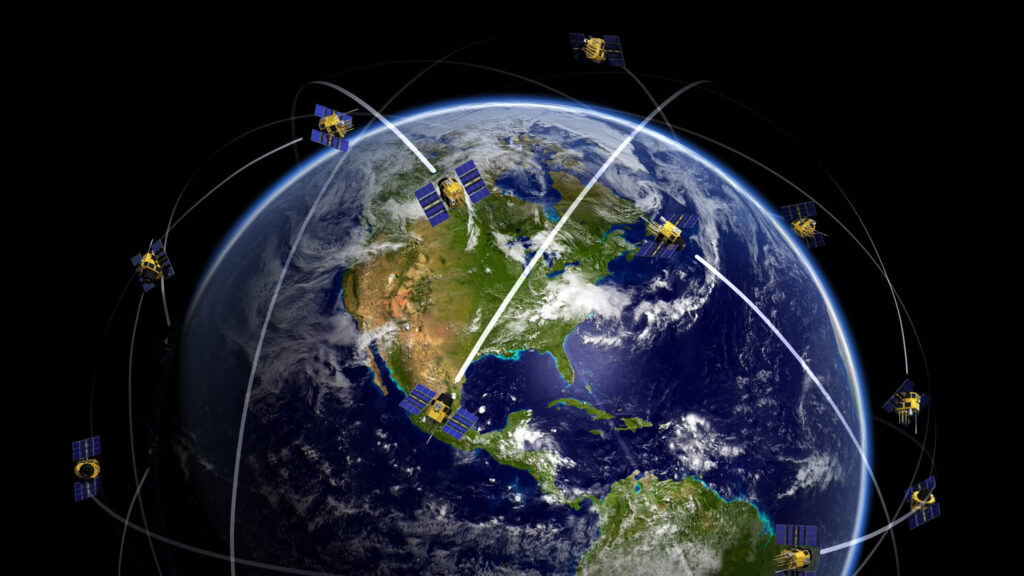
The GPS constellation that provides positioning, navigation and timing signals to the US military and civilians around the world, is made up of 31 active satellites. (BlackJack3D/Getty Images)
WASHINGTON — As the Federal Communications Commission (FCC) ponders changes to spectrum licensing rules in order to support alternatives to Global Positioning System (GPS) satellite signals for positioning, navigation and timing (PNT), the agency is being urged by several trade organizations to carefully coordinate with other US federal agencies, including the Defense Department.
The commission’s jurisdiction is limited to commercial uses of the electromagnetic spectrum. But how it regulates industry can directly affect DoD activities — as witnessed by the ongoing legal dispute over its 2020 decision to allow Ligado Networks to use radio-frequency bands that the Pentagon argues will interfere with GPS signals.
“The FCC has a very important role in licensing the operations of PNT systems, whether they’re terrestrial or in space,” Lisa Dyer, executive director of the GPS Innovation Alliance, told Breaking Defense. It also has “an extraordinarily important role in responding to incidences of harmful interference,” including in cases of “electronic warfare.”
However, she stressed, overall US strategy for “the nation’s PNT architecture requires input from so many different agencies, including … the Department of Defense, the Department of Transportation, the Department of Homeland Security and more.”
Further, Dyer said, even GPS signals designed for civilian uses “are actually absolutely essential to DoD” for operations such as day-to-day logistics” as well as those of the defense industrial base.
“They use the same airlines you and I rely on,” she explained. “They use UPS and FedEx. They rely on train systems to move their equipment across country to ports, especially the really heavy stuff. So there’s a lot here for DoD to pay attention to.”
The GPS Innovation Alliance represents companies involved in GPS work, promotes GPS, other Global Navigation Satellite Systems (GNSS), complementary space-based PNT systems, and their receivers and devices.
The alliance was one of 104 organizations and companies responding to the FCC’s March 28 Notice of Inquiry on its consideration of new rules aimed at promoting both space- and terrestrial-based systems that could “complement” GPS. Consistent with its support of DoD in the Ligado saga, the alliance’s comments included a recommendation that the FCC consider establishing “quiet zones” around the L-band used for both civilian and military GPS signals.
The FCC’s NOI explained that the commission is considering how it might support novel PNT systems due to concerns about increasing interference with GPS signals.
“Given the reliance on GPS for PNT in the United States, it is important to develop complementary and alternative technologies to ensure continuity and resilience in critical operations in case GPS signals are disrupted. In this Notice of Inquiry, the Commission engages a multitude of stakeholders to build a record on specific actions it can take to support government and industry efforts, and to encourage the development of robust and reliable PNT technologies and solutions,” the FCC said in the NOI.
The FCC’s concerns echo those from DoD and the Space Force about the ease of GPS jamming — and the rapid rise in deliberate jamming by governments and militaries in hot spots around the world such as Syria, Ukraine and the Red Sea.
“The concept of looking at other frequencies and other phenomenologies, those are all things we’re pursuing because right now, all of our PNT solutions are in L-band, and we’re looking at other phenomenology like, for example, S-band or something else to really just provide other sources of PNT,” Cordell DeLaPena, PNT program executive officer at Space Force Space Systems Command, said today during an event at the Mitchell Institute in response to a question from Breaking Defense.
Last August, the Space Force’s innovation arm, SpaceWERX, awarded a couple of small contracts to startup Trust Point to explore a PNT ground system that doesn’t rely on GPS. Trust Point is building a PNT satellite network that uses C-band, as opposed to L-band. Further, the service last September tapped four companies to build small, low cost satellites for stationing in low Earth orbit to kick off its Resilient Global Positioning System (R-GPS) to back up GPS signals: Astranis, Axient, L3Harris, and Sierra Space.
While DoD did not submit a response to the FCC’s NOI, it is a key member of the National Telecommunications and Information Administration (NTIA) that did provide comments. NTIA coordinates federal government use of spectrum, and works with the FCC on cross-cutting regulatory issues.
While praising the FCC for acknowledging the need for a “whole of government” approach, NTIA also cautioned the commission that it needs to focus on “what elements of a new technology must interoperate with existing systems, and whether these new technologies must be able to interoperate with each other.” NTIA urged the FCC to only “incentivize” new complementary PNT systems that harmonize with existing PNT systems and with each other.”
Like NTIA, the Resilient Navigation and Timing Foundation, stressed the need for a coordinated government approach to any moves to support alternatives to GPS. “Based on 25 years of participation in and observation of federal PNT policy, we are convinced that unilateral action by any one federal entity will fail and likely be counterproductive,” the foundation warned.
Both the NTIA and the foundation also strongly objected to the FCC’s Ligado ruling.

























































































